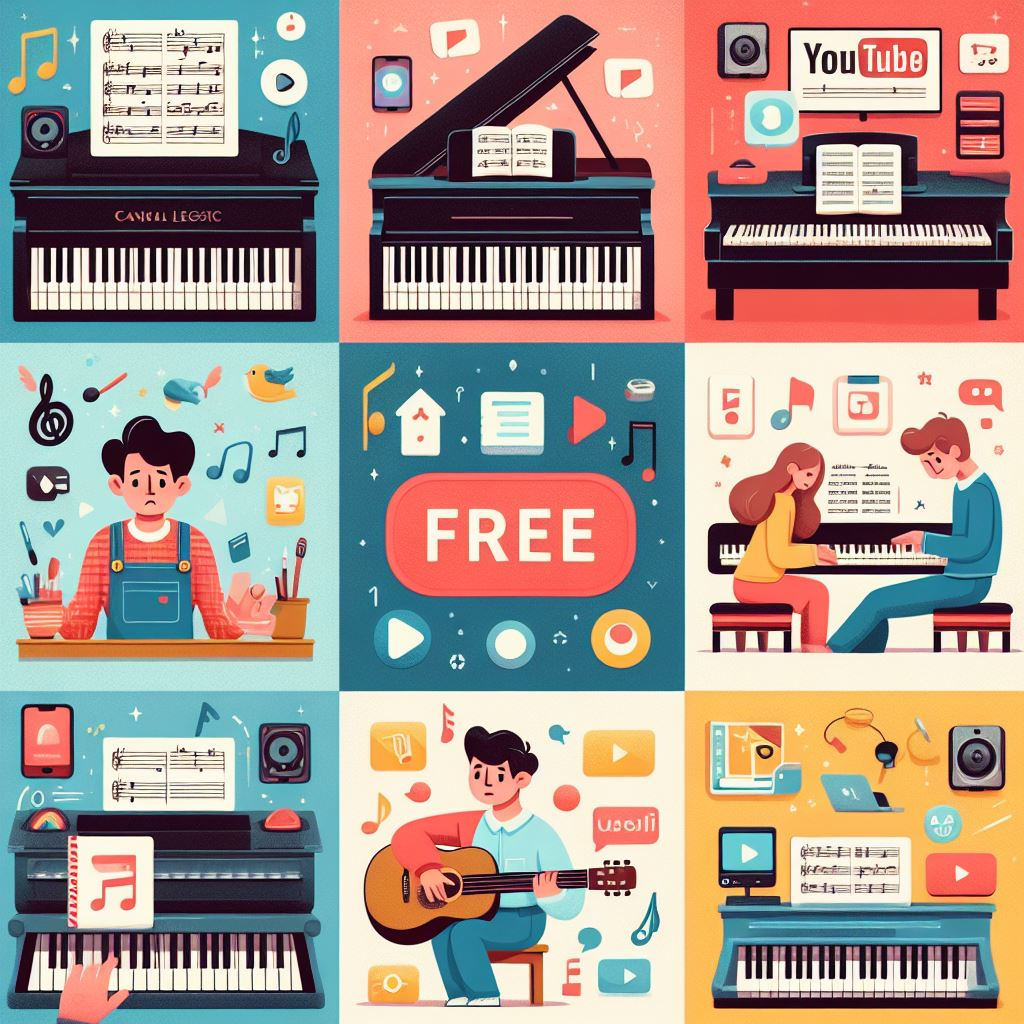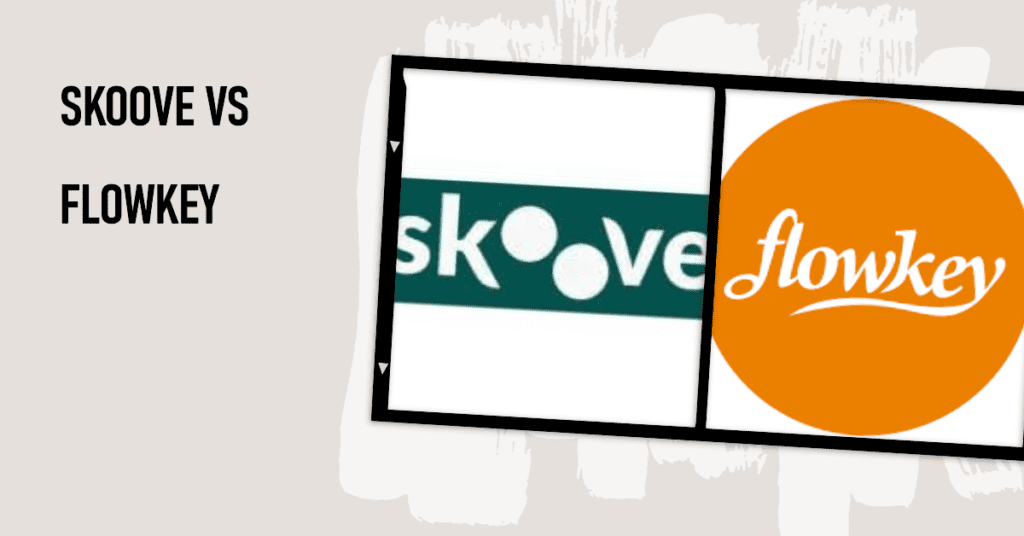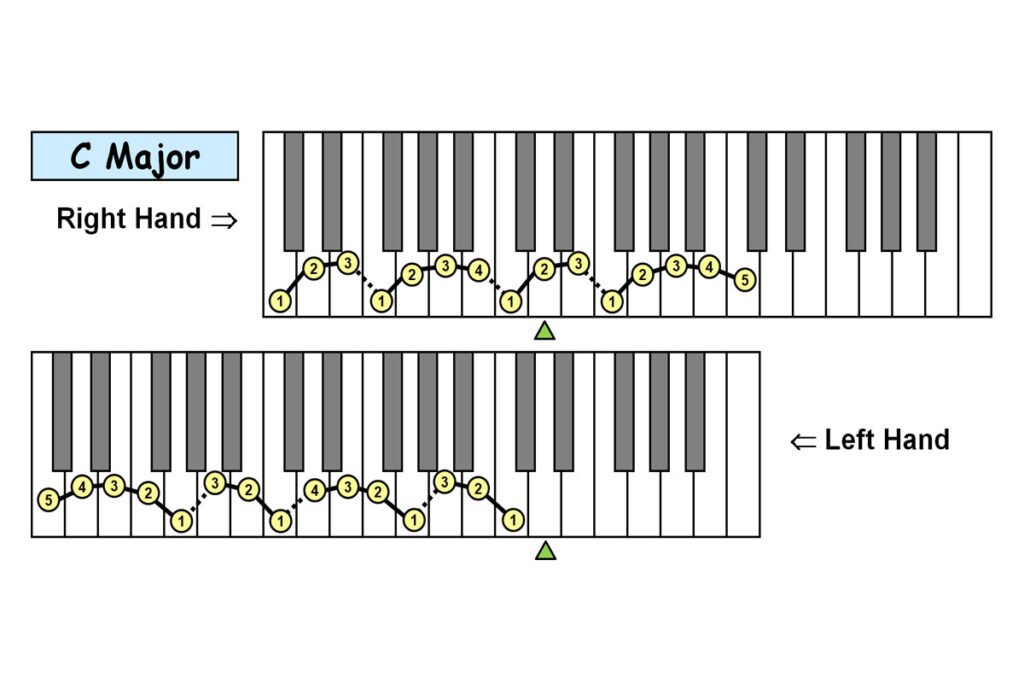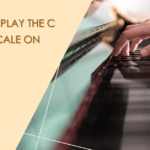Learning to play the piano is a rewarding and enjoyable hobby, but getting started can seem daunting, especially if you’re on a tight budget. Fortunately, there are many free piano lessons and resources available online that can help you get started on your musical journey. In this guide, we’ll explore some of the best free piano learning options, provide tips for making the most of these resources, and discuss the limitations of free lessons compared to paid alternatives.
Finding the Best Free Piano Lessons

When searching for free online piano lessons, it’s important to find high-quality resources that provide a solid foundation in piano technique, music theory, and sight-reading. Look for lessons that are well-structured, engaging, and suitable for your skill level.
Essential Resources for Piano Beginners
- Online piano courses: Websites like PianoLessons.com and Piano Nanny offer comprehensive, step-by-step lessons for beginners.
- YouTube tutorials: Channels such as Creative Piano Academy and Piano Lessons on the Web provide a wide variety of video lessons.
- Apps: Free apps like Simply Piano can help you learn the basics of piano playing using your smartphone or tablet.
Getting Started with Your First Lesson

Before diving into your first lesson, make sure you have access to a piano or keyboard. If you don’t have an instrument at home, consider using a virtual piano app or borrowing a keyboard from a friend or family member.
When starting your first lesson, focus on:
- Proper posture and hand position (more on this later)
- Familiarizing yourself with the piano keys
- Learning basic music notation
- Playing simple melodies and exercises
Top Free Apps to Learn Piano Online
Mobile apps offer a convenient and interactive way to learn piano online. Two popular free apps for beginners are:
Flowkey vs. Skoove: Which is Better for Beginners?

Both Flowkey and Skoove offer free versions of their apps, which include limited access to lessons and songs. Here’s a quick comparison:
| Feature | Flowkey | Skoove |
|---|---|---|
| Lesson structure | Song-based learning | Step-by-step courses |
| Feedback | Real-time feedback on playing | Feedback on timing and accuracy |
| Song library | Large selection of popular songs | Smaller selection, more classical pieces |
| Free content | Limited songs and lessons | Limited courses and songs |
Ultimately, the best app for you depends on your learning style and musical preferences.
Benefits of Using Apps to Learn the Piano
- Interactive lessons with real-time feedback
- Gamified learning experience to keep you motivated
- Access to a variety of songs and exercises
- Flexibility to learn at your own pace
Learn to Play Piano with YouTube Channels
YouTube is a treasure trove of free piano lessons, with countless channels dedicated to teaching beginners how to play.
Popular YouTube Channels for Free Piano Lessons
- Creative Piano Academy: Offers a wide variety of lessons focusing on chords, improvisation, and playing popular music.
- Piano Lessons on the Web: Provides comprehensive lessons on reading music, theory, and technique.
- Hoffman Academy: Features structured lessons that incorporate music theory and sight-reading.
How to Supplement Your Learning with YouTube
While YouTube tutorials can be a great resource, they often lack the structure and feedback of a comprehensive piano course. To get the most out of YouTube lessons:
- Choose a channel that aligns with your learning goals and style
- Follow a structured lesson plan or playlist
- Supplement video lessons with practice exercises and sheet music
- Seek feedback from more experienced pianists or online communities
Mastering Basic Piano Skills Online for Free
As you progress through your free piano lessons, it’s important to focus on developing essential skills that will lay the foundation for more advanced playing.
Proper Hand and Body Posture
Maintaining proper posture and hand position is crucial for preventing injuries and developing good technique. Key points to remember:
- Sit with a straight back, shoulders relaxed, and feet flat on the floor
- Keep your wrists level with the keys and avoid dropping or raising them
- Curve your fingers naturally, as if holding a ball
- Use your fingertips to press the keys, not the flat of your fingers
Regularly check your posture and hand position during practice sessions to ensure you’re developing good habits.
Learning to Read Sheet Music and Chords
Reading sheet music is a crucial skill for any pianist. Free resources like ReadSheetMusic.info offer step-by-step guides to help you learn how to read music notation.
In addition to reading music, learning chords is essential for playing popular songs and improvising. Many YouTube tutorials and online courses cover chord progressions and harmonization.
Practicing Scales and Blues Scale for Beginners

Scales are the building blocks of music and are essential for developing finger dexterity and understanding musical keys. Practice major and minor scales regularly to improve your technique.
The blues scale is a popular scale used in jazz, rock, and blues music. Learning this scale can help you improvise and add flavor to your playing.
The Role of Ear Training in Learning Piano
Ear training involves developing your ability to identify notes, intervals, and chords by ear. This skill is valuable for playing by ear, improvising, and transcribing music.
Incorporate ear training exercises into your practice routine, such as:
- Identifying intervals and chords in songs
- Playing melodies by ear
- Transcribing simple songs or melodies
From Learning to Performance: Playing Your First Song
One of the most rewarding aspects of learning piano is being able to play your favorite songs. As you progress through your lessons, start applying your skills to learning and performing complete pieces.
How to Choose Easy Songs for Beginners
When selecting your first song, look for pieces that:
- Use simple chord progressions
- Have a slow to moderate tempo
- Feature melodies within a comfortable hand span
- Require minimal hand independence
Popular choices for beginner songs include:
- “Ode to Joy” by Beethoven
- “Amazing Grace”
- “Heart and Soul” by Hoagy Carmichael
Techniques for Memorizing and Playing Popular Songs
To memorize and perform a song effectively:
- Break the song down into smaller sections
- Practice each section separately, focusing on difficult passages
- Gradually increase the tempo as you become more comfortable
- Play the song from memory, using sheet music only as a reference
- Record yourself playing and listen back to identify areas for improvement
Limitations of Free Piano Lessons and Resources
While free piano lessons and resources can provide a solid foundation for beginners, they do have some limitations compared to paid options:
- Free lessons may not be as comprehensive or structured as paid courses
- Feedback and personalized guidance are often limited or unavailable
- Free resources may not cover advanced topics or techniques
- The quality and reliability of free content can vary widely
As you progress in your piano journey, you may find that investing in paid courses or lessons becomes necessary to continue your growth and development as a musician.
Online Communities and Forums for Piano Learners
Engaging with online communities and forums dedicated to piano learning can provide valuable support, encouragement, and advice from fellow learners and experienced pianists. Some popular online communities include:
Participating in these communities can help you:
- Get feedback on your playing
- Ask questions and receive guidance from experienced pianists
- Discover new resources and learning opportunities
- Connect with other learners and share your progress
Next Steps: Advancing Your Piano Skills
As you become more proficient in your playing, you may want to consider taking your skills to the next level.
When to Transition from Free Lessons to Paid Courses
While free lessons can provide a solid foundation, paid courses often offer:
- More structured and comprehensive lesson plans
- Personalized feedback from experienced instructors
- Access to a wider range of resources and materials
- Opportunities for interaction with other students
Consider investing in a paid course when you feel you’ve outgrown the free resources available and want to take your playing to the next level.
Finding In-Person Lessons and Local Workshops
In addition to online resources, in-person lessons and workshops can provide valuable guidance and feedback from experienced pianists. Benefits of in-person instruction include:
- Personalized attention and immediate feedback
- Opportunities to play with other musicians
- Access to high-quality instruments and facilities
- Exposure to new styles and techniques
To find local lessons and workshops:
- Ask for recommendations from music stores, schools, or community centers
- Search online directories or classifieds
- Attend local music events and network with other pianists
Learning to play the piano is a rewarding journey that can be started for free using online resources. By taking advantage of the wealth of free piano lessons, apps, and tutorials available, you can develop a solid foundation in piano technique, music theory, and sight-reading. As you progress, continue to challenge yourself by learning new songs, exploring different styles, and considering paid courses or in-person lessons to take your skills to the next level. Remember to maintain proper posture and hand position, engage with online communities for support, and be aware of the limitations of free resources. With dedication and practice, you’ll be well on your way to becoming a confident and skilled pianist.





